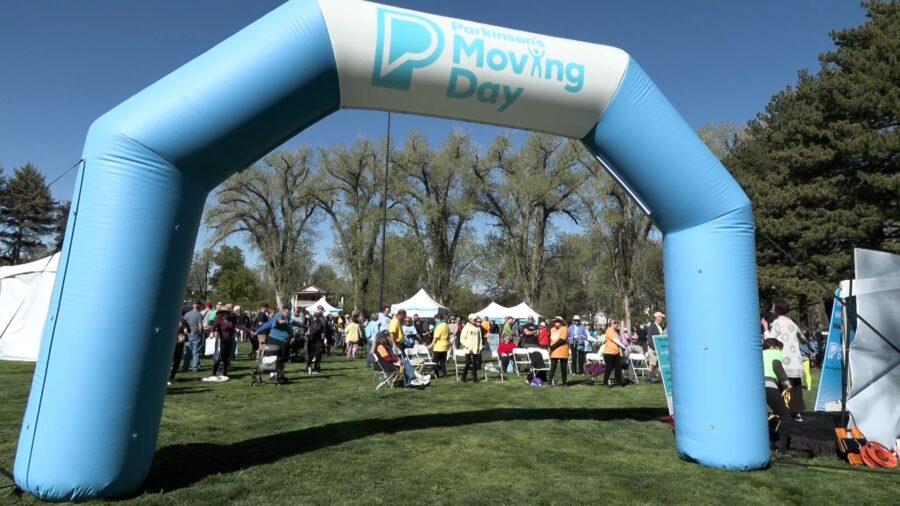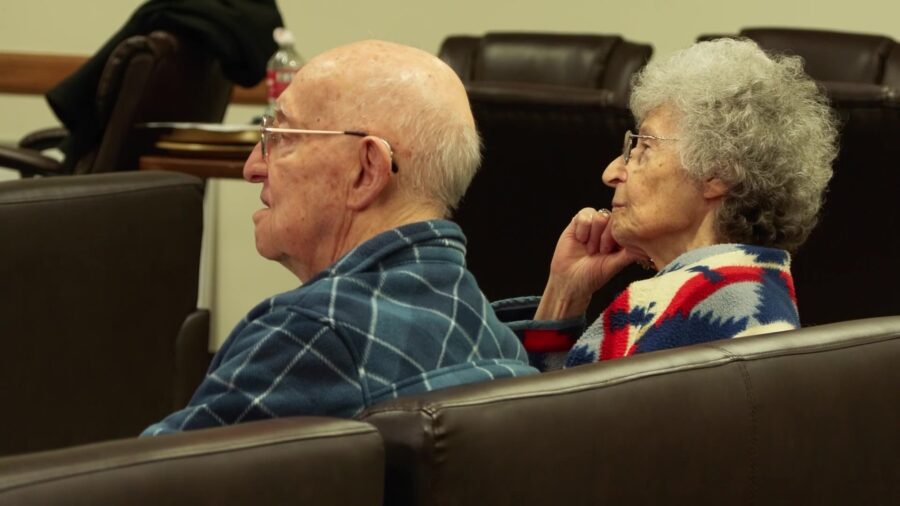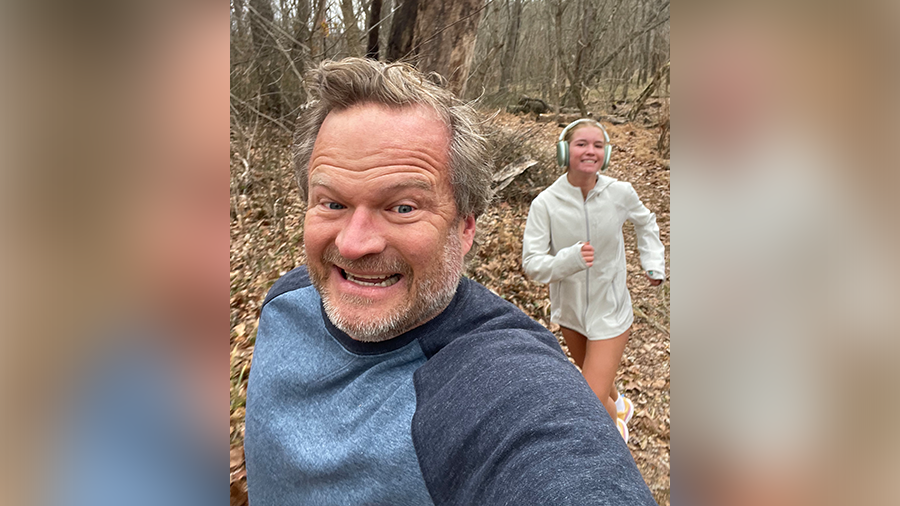How a stroke inspired a poetry professor
Mar 6, 2024, 6:29 PM | Updated: 7:17 pm
LOGAN — Every year, about 800,000 Americans have strokes. But it seems that, unlike Shanan Ballam, few people found poetry in it.
“January 9, 2022, I was getting ready for bed, and my knees buckled. And I fell to the ground. And I managed to call my husband for help. And that was the last thing I said, for three days,” Ballam recounted.
Her poem “nobody” begins:
Nobody understands what it is like to have a stroke, knees buckling and the crash to the bathroom floor.
Ballam teaches poetry at Utah State University and is Logan’s poet laureate, but was wordless.
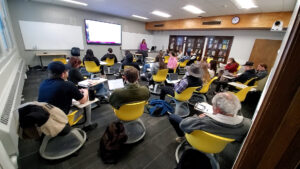
Shanan Ballam stands in front of a class at Utah State University, where she teaches poetry. (Brian Champagne, KSL TV)
“I didn’t have anything to say. Like, my mind was just like blank,” she said.
Her husband, Brock Dethier, also a poet, wrote in “SILENCE”:
We both imagined what would happen if your speech never came back. If you were one of the few who lost voice entirely and for good. But as a poet without a voice.
In the hospital, her memory misfired. Not remembering her room layout, she kept thinking someone was rearranging the furniture:
I lived inside shadows and light ever-shifting. Nurses drift nurses dressed in blue, sifting in and out of my room like sand. I woke in a different room every day.
On the third day she spoke five magic words, “It’s Let’s Make a Deal,” referring to the program on TV in her hospital room.
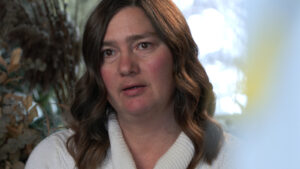
Shanan Ballam had to learn how to speak and walk again following her stroke. (Peter Rosen, KSL TV)
However, she was far from back to her old self. She had to relearn how to walk and talk:
I claw my way through the cobwebs of aphasia. Dull and empty my brain. Snow on the crab apple branches again. I am radiant with patients. I will not break.
“We would play word games,” she said. “Like where we would come up with all the words that start with ‘C,’ or all the words that rhyme with ‘cone.’”
She wrote poetry again, but this time about her stroke:
The oxygen deprivation blossomed in the brain. It was almost beautiful. If it hadn’t been my brain.
“I just had a drive to write poetry because I wanted to share my experience with the world,” she said.
“(Her) writing never suffered at all,” said Aaron Timm, a woman in her poetry critique group. ”That’s the, like the amazing thing. Like even when she struggled with communicating verbally her poems are always like kick-ass, like way good, you know.”
Ballam is publishing a collection of her poems this spring in “First Poems After the Stroke.”


